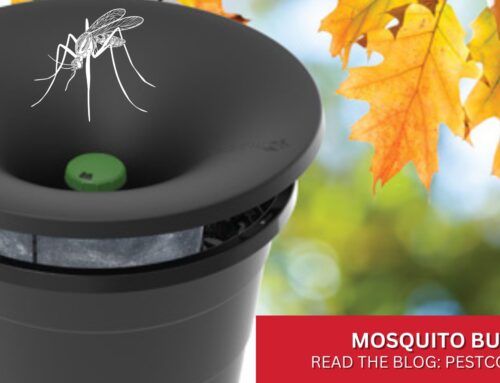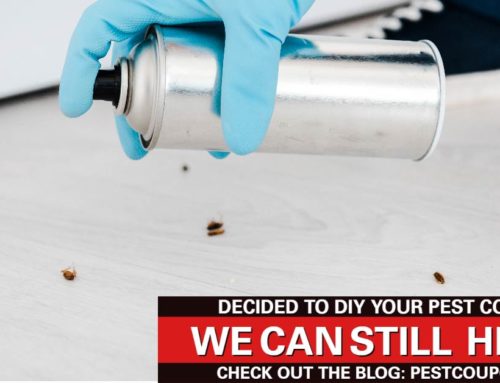Summertime is the time for get-togethers, BBQs, pool parties, and cookouts. While we all love to show off our skills at the grill and convene with friends, there is one thing that is sure to ruin any good gathering: Pests. Pests won’t send you an RSVP, but they certainly will bring an unwelcome plus one. With a few easy steps, you can keep bugs far away from your outdoor kitchen so you can enjoy your cookout!
1. Tidy Up and Maintain the Lawn
The first step towards keeping your yard pest-free during your next cookout is to take the time to get your lawn cut, trimmed, and cleaned. Pests like to hide and nest in overgrown grass, weeds, and plant debris, so cleaning up your lawn is the first step towards avoiding unwanted insects and wildlife.
- What is Lawn Debris? Examples of yard and garden debris are basically any organic plant materials. These include raked leaves, areas with branches or twigs, and piles of firewood.
- Cut Your Lawn. Grass is a natural habitat for bugs and insects. Before your next outdoor cookout, a handy yard maintenance tip is to cut the grass a little shorter than usual to avoid an underfoot gathering of stinging or biting bugs.
2. Eliminate Standing Water in Your Yard
Water-loving bugs, such as mosquitoes, are attracted to standing water because it is a great breeding and feeding ground. Homeowners are often surprised at how many sources of standing water they find after a cursory lawn inspection. The following areas are those in which water-loving insects prefer to convene:
- Bird Baths
- Gutters
- Puddles
- Uncovered Rain Barrels
- Poorly Drained Soil
- Children’s Toys
Protecting Guests from Mosquitoes. Nothing ruins a cookout faster than a swarm of bloodsucking mosquitoes. Protect yourself and your guests by preparing your yard as well as keeping EPA-approved insect repellent with DEET handy to use as a defense against mosquitoes. You can also implement other defenses, such as box fans and tightly sealed trash receptacles.
3. Evaluate Your Yard
For the comfort and safety of your guests, a cursory scan of your lawn can help you identify potential pests that have nested or built hives. Bees and wildlife are two pests that can surprise guests if their habitat is disturbed.
- What to do if you find a beehive or wasp nest? Call Orkin! Never try to take care of a swarm of bees without professional help. While a single sting might not be the end of the world, many stings can be dangerous and even deadly.
- What to do if you find wildlife? Even if they look cute, animals such as foxes, skunks, and groundhogs are still wild animals. If you suspect a family of wildlife has made residence in your yard, don’t try to pick them up and carry them out. Orkin will perform an evaluation of your property and help you figure out the best course of action.
4. Defend Your Food from Thieving Pests
Pests have a major sweet tooth, and cookouts are the ultimate smorgasbord. Fruits, juices, desserts, and alcohol are a bug’s best friends. Before your next cookout, take the time to assess your food storage situation and consider investing in some coverage before the event.
- Trash Cans. Never underestimate a good garbage can. Containers with tight lids are some of the most effective defenses against pests because they rely so heavily on smell to seek out food. And if it has a tight lid, the bugs can’t get in!
- Set Up. The way you set up your event can have a huge impact on the number of bugs swarming your guests. By setting up the refreshments and garbage away from where your guests will convene, you can help protect them from annoying insects.
- Food Coverage. Saran wrap is one method of food coverage, but it can get crinkled up and easily become ineffective. Go the extra mile for your guests and find food containers designed for coverage.
Call Orkin to Schedule Your Next Yard Control Appointment!
Orkin professionals know how frustrating it can be to watch a good cookout get usurped by hungry, uninvited pests. That’s why Orkin has options for homeowners to defend their yard against invasive insects!







